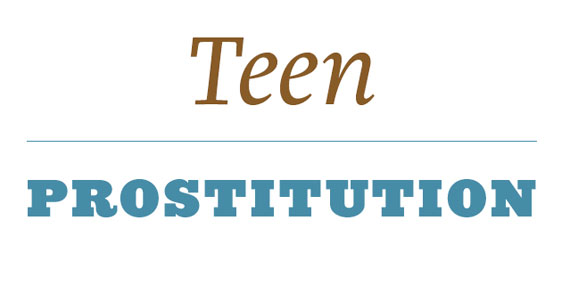
The more I try to look closely at what it means to be a good man in America the more I come back to role of sex in our culture. I don't just mean the celebrity athletes like Lawrence Taylor and Tiger Woods who fall from grace, but the ways in which sexual exploitation of women and girls has infiltrated everyday life. As the father of a teenaged daughter I am particularly sensitive to the ways in which pornography and prostitution seem to be accelerating without anyone taking notice since we all seem to be more interested in People Magazine than the way young women are treated by men in our own communities.
To find out for myself what is really going on in Boston, I went to one of the most respected institutions in the country for the treatment of girls.
Germaine Lawrence is a residential treatment facility for adolescent girls. They serve girls whose behaviors include school failure, suicide attempts, cutting, sexually acting out, drug or alcohol abuse, running away, eating disorders, aggression, or firesetting. They are also a leading treatment center for teenage girls who have been sexually exploited.
is the executive director of Germaine Lawrence.
is the clinical director of the ACT Group Home.
is the program director of the ACT Group Home.
David, I understand that here at Germaine Lawrence, you treat a number of acute problems for teenage girls and are successful with all but one of the populations: girls who are sexually exploited. I'd like to hear about that.

The majority of our girls have experienced traumatic sexual and physical abuse. They develop a wide variety of behaviors--they might try to commit suicide; they might cut themselves. But one way or the other, they hurt themselves. Other girls hurt other people: They physically assault people; they sexually abuse people; they set fires; they join gangs and get into criminal problems. Perhaps the biggest group, though, runs away from the abusive setting. And when girls run away, they're "lucky" because there are guys out there who give them a place to stay, they give them food, they give them alcohol and drugs. The girls think, "This is a great guy." They don't see it as trading sex for a place to stay or food or drugs and alcohol. They just see it as, "I got a new boyfriend."
And success is defined as not repeating the behavior that got them here?
That's right. Still living in a stable, safe place. Still going to school or working. Not having been institutionalized or arrested, imprisoned. The population that we're getting the worst outcomes with are the girls who have been sexually exploited. They have a fantasy that their man is still out there for them. If they get sick of us, they can go back to their pimp, and even though it was bad the last time, they tend to forget the bad part. A big part of the initial treatment is education. A lot of the girls come in and don't actually acknowledge that they've been exploited. They identify the man as their boyfriend. and have almost been brainwashed.
Just to be clear, what age are we talking about?
I would say 13 to 18. But we've had girls here who were 12 who were exploited.
So give me an example of a story of a kid--don't use their name, but tell me what life really was like before they get here.
An example that was actually a huge success is a young woman who grew up being involved with the Department of Children and Families. Did not have any involvement with her father. Mom raised her but had her own mental health issues. And so this young woman grew up in foster care, residential placement. Was running constantly beginning at age 13. Was actually placed here when she was 14 and stayed about six months and then left again. And she was actively being exploited, both in Boston, New York, and at that time wasn't at a place where she, for whatever reason, was ready to get out of the life. I think there were days where she wanted out, but then the draw was so powerful because she got a lot of money and had really nice things. She really glamorized it for a while and even to this day, she's been out of the life for almost two years. But her ongoing struggle is the desire to have really nice stuff and go out to nice dinners, stay in fancy hotels, but also she knows it was so bad for her, the abuse that she experienced and the violence. I don't know what clicked for her but two years ago she made the decision to stay out of the life and has really engaged in her treatment and has a job, does speaking engagements in Boston telling her own story, and is going to college.
If part of the draw with these girls is purely economic, how do you build up the alternative to the glitz and glamour that a pimp might offer?
We have a monetary system. The girls are used to seeing money, holding money, having nice things. So we are encouraging girls to do what they're supposed to be doing. If they go to school, if they participate in their group therapy, if they don't run--they get paid. We have chores as well. But we really encourage them to do positive things, and they get a really nice allowance at the end of the week. We have activities that are out in the community, that maybe they've never done before. Just have fun. Be kids.
And increase their self-esteem.

How do you get a kid like that on a trajectory where they're going to have an ability to support themselves--longer-term kind of career goals--or are they just too young for that?
We talk about money management and goals, what they want to study in college, and how they're going to get there. We do a lot of education on basic budgeting and money management.
I want to kind of switch gears a little bit. What responsibility do we have as men? How do you make sense of the men who are using these girls, who are having sex with these girls, who are pimps for these girls?
I've been here over thirty years, and it's made me negative about human nature. I was brought up around nice, responsible people--I thought that's what the world was like. But I've met thousands of girls who've been terribly abused, overwhelmingly by men. Women do terrible things, too. I can't let them off the hook. But the amount of horrendous, mind-blowing abuse, that's what I've been seeing for thirty years now.
Do you think that we as a culture are addicted to sex in a certain way that, unfortunately, ends up being abusive to the most vulnerable?
Yes. But if you go back and you read your basic history of war--and human--it's just a history of warfare. But if a city actually said, "Screw you, we're not giving in" and there was a siege, and they lost, the men got killed and the women got raped. The history of rape is part of the history of humanity.
I'm trying to say we're actually not that bad. We just kind of lost our way.
One of the ways I bond with the women here is I say, "Yeah you're right. Men suck."
Well, my organization is called The Good Men Project. So it's about men being good. So I'm not going to buy into the idea that we suck.
There are good men, but I've become much more pessimistic about humanity. And I focus on men more than women because men have been the dominators, right? This is not news. We have defined culture. We've been in charge. We've been in control. And I don't think it's that men, that the male of our species uniquely sucks.
Let's go back to these girls. Who are the pimps and the johns?
Girls that are exploiting themselves are getting younger and younger, pimps are getting younger and younger. And it's not the 28-year-old creepy guy that drives a Cadillac and has the gold teeth and the big hat anymore. It's the boy you sit in class with the nice sneakers and the nice shirt and looks just like everybody else. It's not that easy to identify. In some cases it's a generational thing, where they've been raised in families where their dad was a pimp, and they've become a pimp.
How are they doing it?
Online. It's a lot of money. Even at schools.
How do you get at the bigger problem?
What isn't recognized is that the girls are victims, not criminals, and what the men are doing is exploitation. It's not just a commercial transaction. The system has been slow to recognize it, but it's starting to. Males have been so in charge that it's the exploited ones who go to jail-- not the johns. And that education is critical.
There are so many myths that are out there--
--The great majority of these girls have been raped and beaten and forced into prostitution. This is not your middle-class college-educated girl who says, "I can make money turning tricks with CEOs." That's not what it's about. Ninety-nine percent of it is girls who've been terribly exploited
Yeah. Or they get addicted to substances, which is another way that they dissociate.
The boyfriend gets them into heroin. But there is this feeling of, "Now I'm ruined. I am no good. No one could ever love me after this. Except for him."
Right. Are you're going to run to the police and tell them you're prostituting? Are you going to run to your family and say, "This is what I've been doing"? There's a lot shame attached.
The amount of shame is phenomenal - I'm no good. I'm worthless. No one could ever love me. Just give me the drugs. I'll do whatever you tell me. There's this loss of self, the loss of self-esteem is radical.
Then it's a matter of trying to fill that hole and create a loving environment where those girls can actually get out of the hole?
Right. And help them find themselves.
Empowering them.
You're doing great work.



